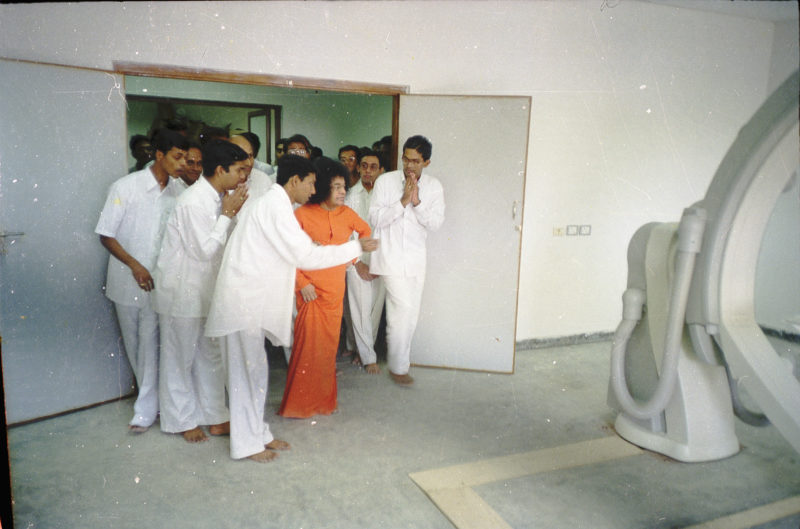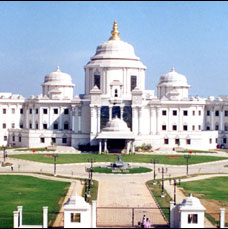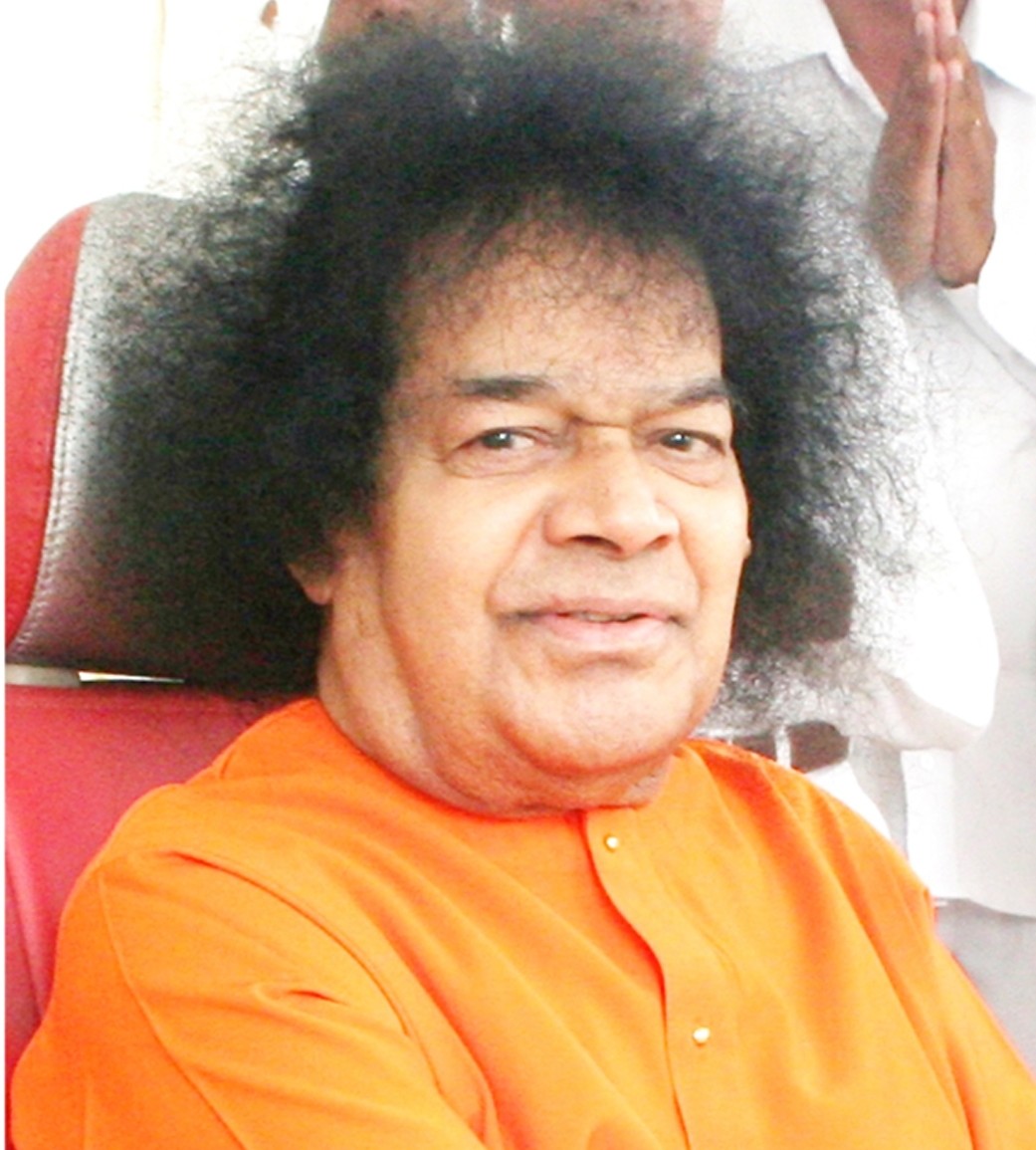- By Mr. Y. Arvind
A doctor was speaking to a patient. With the rigor born out of habit, the doctor was repeating in fluent Tamil, a South Indian language.
“You are being discharged today. You will receive your discharge summary in which all the instructions that you have to follow are mentioned. Follow them rigorously. Your heart valve has been replaced. It is a metal valve and has to be maintained. We are giving you a medicine, Warfarin.”
The forehead of the patient puckered in confusion. The doctor picked up the discharge summary and showed him the name of the medicine printed in bold.
Clarity of Communication Defines Doctor-Patient Relations
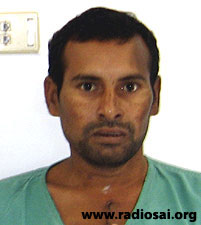 |
|
|
Mr. Easwaran
|
“I don’t know English sir!” said the patient in Tamil. “I only know how to sign my name.” A common answer from many of the patients who come to the doors of the Sri Sathya Sai Institute of Higher Medical Sciences, Whitefield; most of them are illiterate even in their mother tongue. But, of late, things seem to be looking up. The value of education seems to have been recognised, for though the parents are not so fortunate, they endeavour to provide their children with at least a basic education.
In this case however, English was definitely not the medium of communication, and the doctor was following the best practice; explaining to the patient in a language that he understood and was conversant with, the meaning and import of everything that was said. In fact, it is mandated that nothing be done without the consent of the patient in writing. Before any procedure that the patient will have to undergo, it is explained fully in their native tongue. Returning to the context…
“Go to your local chemist and tell him that you have had an Aortic valve replacement surgery done,” said the doctor. “Also show him the note that I gave you this morning (prescription). It contains all the medicines that you have to take regularly. He will know what to give you. Otherwise, the sister here will help you, write down the names in Tamil and memorise them.”
The patient’s face brightened. Now that was something he could do. After all, most of what we learnt in our formative years was through memorisation. The doctor continued.
Treating Patients with Plenty of Patience
“I am mentioning this again and again. Of all the medicines you must take, this medicine Warfarin is the most important. This is a blood thinner. Your valve will work as long as you take this medicine. It must be taken every day at 5.00 p.m. without fail. You cannot miss even one day. You can skip eating your meal but you cannot miss out on this medicine. Do you understand?”
|
|
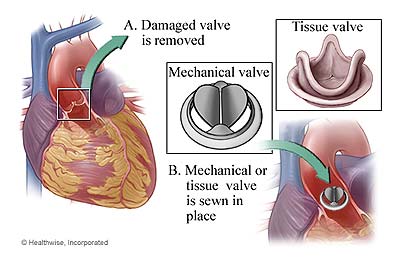 |
|
Easwaran received a metal mechanical valve replacement
|
The patient nodded but from the expression on his face it was obvious he was still unclear. The doctor explained for the third time and concluded saying, “If you miss even one dose, the blood will clot and the valve will close permanently. If the valve closes, your heart will stop and you know what happens when your heart stops. There will not be enough time to get you to a hospital.”
The doctor paused and repeated slowly with emphasis.
“Prevention is the only solution. You must take this medicine life long. The other tests that you need to get done periodically, have already been explained to you, correct?” his eyes looking at both the men standing at the desk.
“Yes sir,” replied the thin and spry young man accompanying the patient.
”Take care, if you take the medicine regularly, stop smoking and eating non-vegetarian food, the valve will serve you well. If you don’t follow the instructions perfectly… all the effort spent will be a waste. Do you understand? Your wife and children will suffer the consequences of your action. Okay?” said the doctor.
The patient nodded once again. His attendant piped up. “I will make sure of everything sir. We live together. I will take care.”
“Good!” the doctor turned and caught sight of me at the end of the desk.
“AVR?” I asked in English.
“Discharge today. You know the drill!” replied the doctor in English, his fingers mimicking the opening and closing of a heart valve.
“I only hope he takes it regularly.” I was referring to Warfarin.
“He will if he understands that his life depends on that little white tablet. Got to go now, have to scrub up.”
I nodded understanding his hurry. The Operation theatres begin at around 8 in the morning and go on till late evening, sometimes even into the night. It was close to 9 a.m. and there was definitely a patient waiting on the table…
Faulty Valves Damages Hearts, Shortens Life Spans
 |
|
|
Rheumatic fever had damaged the aortic valve, causing calcium deposits to build on the tissues, keeping the valve from closing properly
|
AVR is short for Aortic Valve Replacement. Easwaran was suffering from aortic valve damage, a consequence of rheumatic fever. The heart is the pump of the human vascular system with the Aortic valve being the outflow regulator for pure blood to all parts of the body.
Due to various reasons, rheumatic fever being primary, the valve slowly undergoes degeneration. Calcium deposits form on the valve preventing its function. Consequently the heart muscle weakens and if left untreated will hasten the inevitable.
I was intrigued by the last words of the doctor ‘He will, if he understands that his life depends on that little white tablet’. What did this new life mean to the recipient? Did he really know the value of what he had been gifted with? A valve surgery in any commercial hospital costs not less than Rs.1,00,000/- (approximately US $2500.00).
One is advised not to look at a gift horse in the mouth, but equally true is the corollary that when things are given free, one does not realise the value. I wanted to know more of this man from the land of Avvaiyyar and the holy Tiruppavai (the state of Tamil Nadu in South India).
Sai Sevadal Volunteers – An Army of the Virtuous
Understanding that the patient spoke no language other than Tamil, I required the help of the Tamil speaking sevadal volunteers to buttress my meagre repertoire. The old gentleman who seemed to have weathered more than fifty summers readily agreed to be my interpreter and we went to the cubicle where the patient was seated on his bed.
To the uninitiated, sevadals are unique to the Sri Sathya Sai Seva Organisation where men and women from all walks of life, from academicians and businessmen, to students and housewives come and perform service activities allotted to them in the true spirit of giving. They can be identified by the blue and white scarves for the men and the orange and yellow scarves for the women. They are the silent and unsung heroes who work incessantly to resonate Bhagavan Baba’s call that service to man is service to God.
The sevadal and I stood at the foot of the bed together.
“There are many people in this world who are not as fortunate as you, and there are others who are willing to help people like you…” I began. The sevadal translated eloquently. “Would you like to be of service to others who have similar problems?” The patient nodded and vehemently replied in the affirmative.
“I would like to put your experience in this Hospital in words and share it with the world. Do you have any objection to that?”
“Absolutely no problem sir, it would be a great service if more people got to know of this Hospital and the good work it does.”
“Please tell me your story,” I said, uncapping the pen.
Tale of a Humble Truck Driver
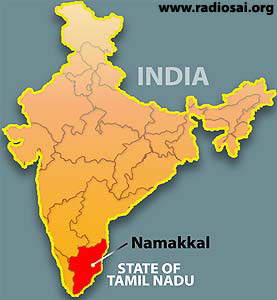 |
|
|
Easwaran comes from Namakkal, a town in the state of Tamil Nadu, India
|
“My name is Easwaran, I come from the township of Namakkal in Tamil Nadu. My heart problem was first diagnosed in 2003. Then the problem became serious in 2006. When I was first faced with the symptoms in 2003 I approached a local doctor, Dr. Vishnu Ram in our town. He had done his medical education abroad and had returned to practice in India. He did all the required tests and told us to come here, to this Hospital (Sri Sathya Sai Institute of Higher Medical Sciences). He has his own hospital cum nursing home in our town. We saw the photo of Swami in his hospital. He is a follower of Swami.”
The direct and uncomplicated narration of the man with the scar was typical of one speaking of facts oft repeated, but now in a different context. He paused to catch his breath, and his attendant who introduced himself as Manoharan took up the thread.
“My sister’s daughter worked in Puttaparthi Hospital for five years.”
I realised he was speaking of the Sri Sathya Sai Institute of Higher Medical Sciences at Prasanthigram, in Puttaparthi. Manoharan continued.
“Since I had the contact in Puttaparthi, we first went there. Once there, we were told that a Hospital has been started at Whitefield and were directed here. We, at least, wanted to have Swami’s darshan. But that was also not feasible. We were worried about his condition and we came over here immediately. We came in 2003, all the required tests were done and we were given a number and told to come in 2004.
“We received the call letter in 2004; it came to our home address. We immediately came over and he was checked up. We were told that the disease was still medically manageable and were told to come in 2007.”
Missed Appointment Causes Delay in Treatment
They could not come in 2007 for various reasons one of which being that Easwaran was a heavy motor vehicle driver. For more than a decade, his call of duty took him across the country, even to the northern states. They missed their appointment and had to get back in line. The load of driving heavy lorries and trucks over long distances in high strung situations, took its toll, and one day in Nasik, in the western state of Maharashtra, Easwaran collapsed.
He had severe pain in his chest and was immediately admitted in the local hospital; the expenses were borne by the transport company. After a week’s hospitalisation, he was pronounced fit to travel and he returned to his home town. His family and friends suggested that he go to Coimbatore (second largest city in Tamil Nadu) for a more comprehensive check up. The entire trip cost him Rs. 6,000/- and as usual the doctors had their words of advice.
Expensive Surgery Beyond a Truck Driver’s Means
|
|
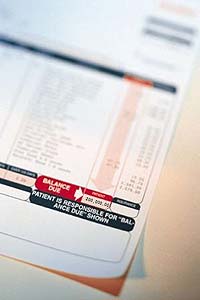 |
Easwaran spoke, his voice cracked and hoarse, sometimes fading away as his breath gave out. “The doctors said the condition was very serious and I must undergo surgery immediately. They gave us a figure of Rs. 2,00,000 (approximately US $5000) and told us that this included, the angiogram and other preoperative tests, the surgery cost and post-operative stay in the hospital. That amount was way beyond us. We just collected the reports from them, put our faith in God and came to our Hospital here.” He reached for a glass of water that stood ready on the bedside cabinet.
I could not help smiling hearing the word “our”. Apparently the temple of healing means different things to different people.
Health Restored, Easwaran Looks Forward to Reunion with Family
Manoharan took over. “We came and had a full check up done. We went back to Namakkal for the dental check up and other formalities because it was difficult to find accommodation here. He was admitted as an inpatient after we came back with the reports. The operation was done on August 19, 2008, and today, one week later, he is being discharged to return home.”
“How do you feel now?” I asked Easwaran.
“We have no complaints; very satisfied sir,” replied Manoharan; Easwaran nodded his assent. A father with two sons, Iraivan in the fourth standard, Jagadeesan still a toddler, Easwaran had a lot to look forward to. His wife Amu along with his sons awaited his arrival back home.
Sai, the God of Many Names
As a parting shot, I asked, “When did you get to know of Swami?” and gestured reverentially towards a photograph of Bhagavan Sri Sathya Sai Baba on the wall of the cubicle.
“We got to know Swami only through the doctor in our town. He has a huge photograph of Swami in his hospital. We pray to all gods, Maariamma, Angala Parameswari…we believe in all gods, sir,” came the rapid fire reply from Manoharan. He continued without a pause pointing in the direction of the central dome. “Every morning after my ablutions I chant the various names of God. And, I feel very happy and satisfied.”
Purity of Premises Unites Families
 |
|
|
Sri Sathya Sai Institute of Higher Medical Sciences (SSSIHMS), Bangalore
|
The Suprabhatam (invocation to awakening the divine within) and ashtothram (the 108 names of God) in praise of Bhagavan Sri Sathya Sai Baba are chanted every day at daybreak in the Sri Sathya Sai Institute of Higher Medical Sciences. Many patients and their attendants join in offering their gratitude to God; whatever they deem Him to be.
Manoharan joined in this everyday of his stay in the Hospital. I flicked through the file and found he was the brother-in-law of Easwaran. It was interesting to see the extremes of filial bonding; newspaper headlines of brother suing brother at one end of the spectrum and in-laws so close at the other in Sai’s hospital.
I capped my pen and smiled at the duo.
“Give them my gratitude uncle, and ask them if they are certain they want to share their experiences.” I said to the kindly sevadal volunteer who had patiently played the role of impromptu interpreter.
“We want more people helped like us, sir,” said Manoharan. “This Hospital is really heaven but how many can come here?” he left the question hanging.
I understood the unsaid words. There are many who cannot travel the distance to the Hospital for various reasons: financial constraints, family problems, critical stages of their disease… Manoharan was sending a message to the more fortunate among us. It does not suffice to just direct people to the SSSIHMS, it would be of greater use were we to be able to help them in their home towns. I began to see a new meaning in Bhagawan Baba’s words.
“I have not come to start a new religion. I only want a Hindu to be a better Hindu, a Muslim to be a better Muslim, a Christian to be a better Christian…There is only one religion, the religion of Love.”
Altruism – A Reflection of the Soul’s Evolution
|
|
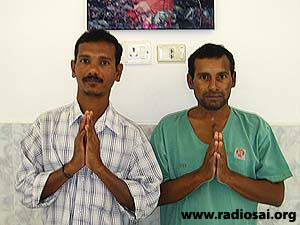 |
|
“The Hospital is really heaven” – Easwaran and his loyal friend, Manoharan
|
There are among us those that earn ten times a month what others earn in a year. Yet we think a million times before we extend a helping hand. And there are among us those that don’t think twice about going out of the way to help another in need. To do what is possible within one’s means to make the world a better place for one’s fellowman… is a reflection of one’s evolution.
These thoughts flashed across my mind as I looked into the honest sparkling eyes of Manoharan. Easwaran’s eyes however looked tired, but a new life was spread out before him. He was happy and that was evident in the smile that played on his lips.
I was exiting the cubicle when Manoharan hesitantly asked, “Sir, when would be the best time to have Swami’s darshan?”
The innocence of the question evoked a smile. I replied with what has worked for a million others.
“Sincere prayers are always answered.”
I knew my words had hit home when I saw the blooming faces of the brothers in arms.

